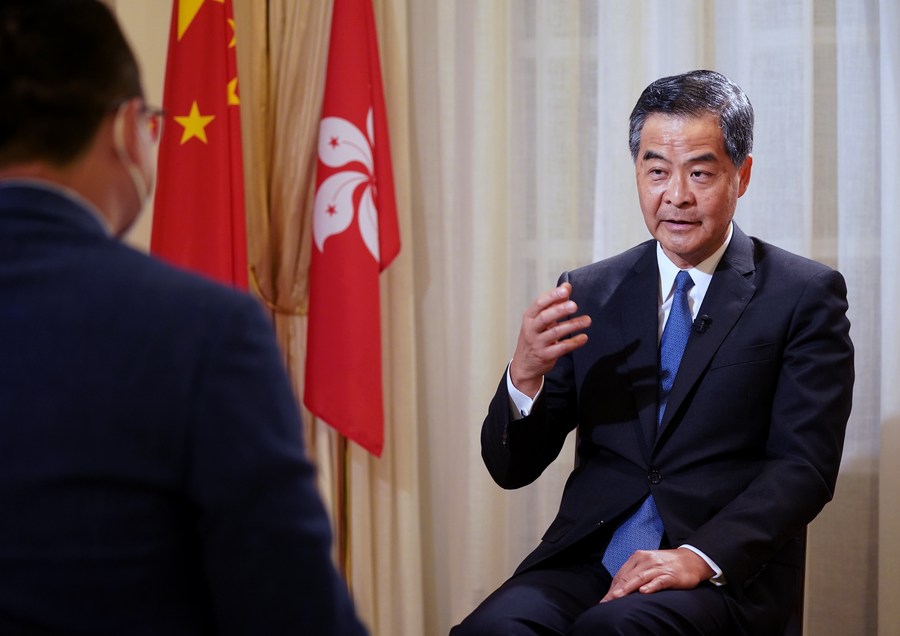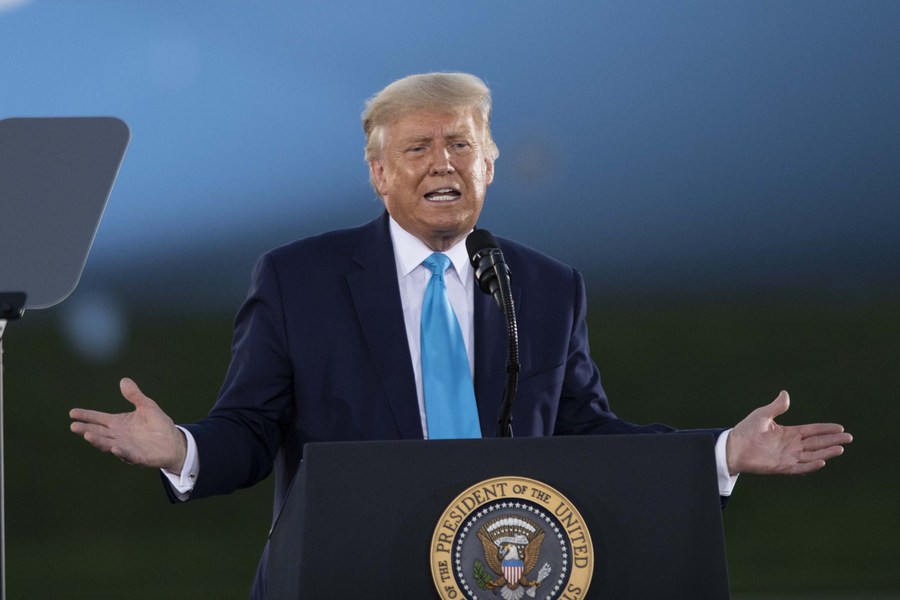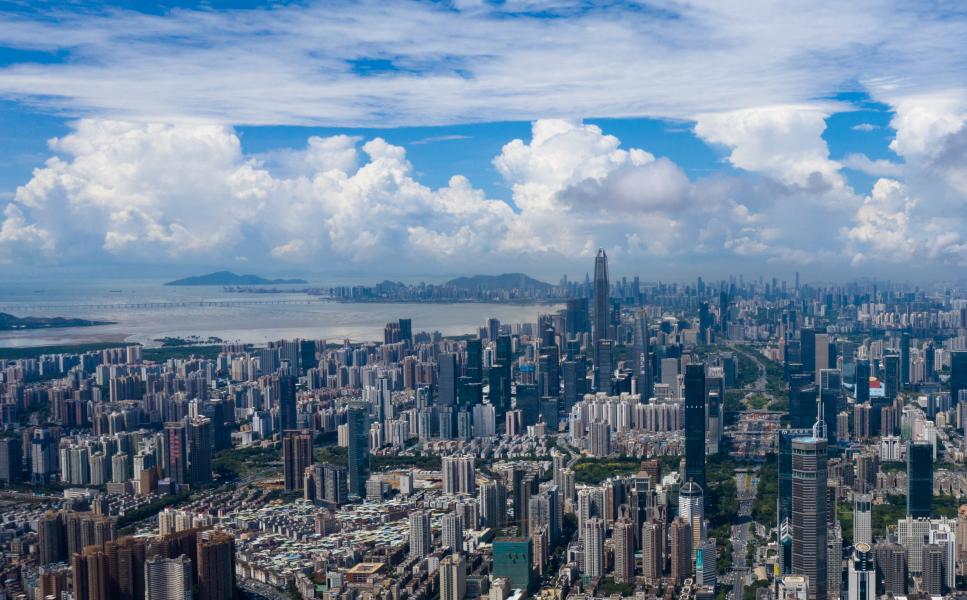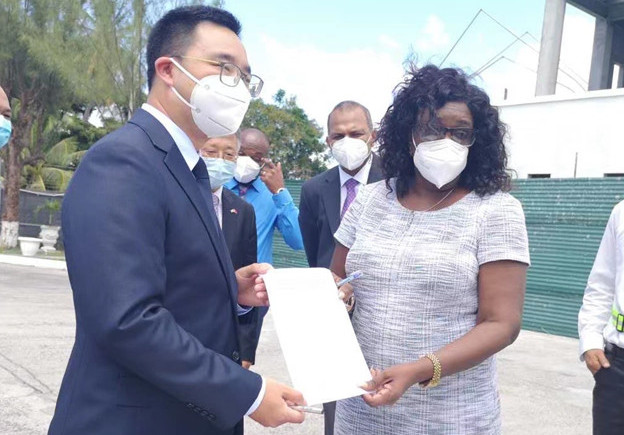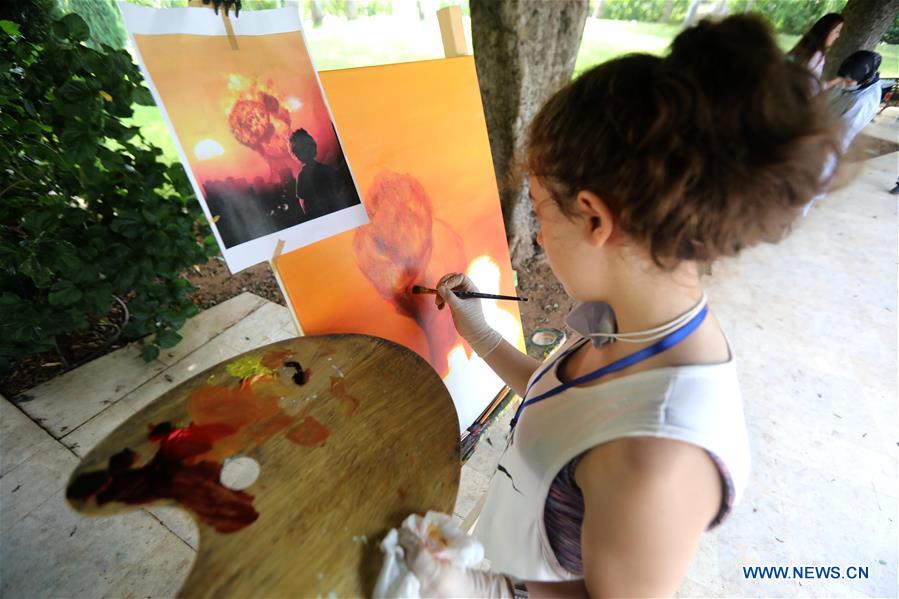-- Containing COVID-19 is an urgent task for Hong Kong to achieve, so as to avoid structural damage to its economy in the medium to long term.
-- "Dual circulation" floated by the country's top leadership offers Hong Kong a way out of economic doldrums.
-- HKSAR's long-term prosperity relies on deeper integration with the overall national development strategies.
-- Hong Kong has gradually returned to peace and tranquility thanks to the national security law, but "there is still a way to go in explaining the law to the public."
HONG KONG, Oct. 11 -- Hong Kong must avoid structural damage to its economy, and the first step toward recovery is to bring the COVID-19 epidemic under control, Vice Chairman of the National Committee of the Chinese People's Political Consultative Conference Leung Chun-ying told Xinhua in an exclusive interview.
Amid fears of a probable new wave of COVID-19 in the Hong Kong Special Administrative Region (HKSAR), Leung, also former chief executive of the HKSAR, said containing COVID-19 was a pressing task that must be solved, "otherwise Hong Kong's economy would suffer some structural damage in the medium to long term."
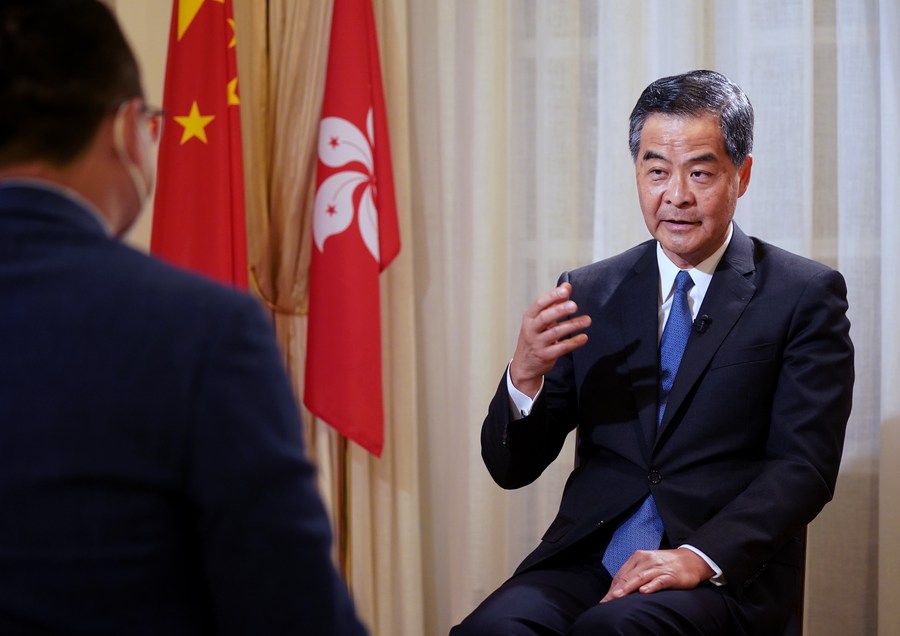
Vice Chairman of the National Committee of the Chinese People's Political Consultative Conference Leung Chun-ying, also former chief executive of the Hong Kong Special Administrative Region (HKSAR), speaks in an exclusive interview with Xinhua in Hong Kong, south China, Oct. 8, 2020. (Xinhua/Wang Shen)
Prolonged social disturbances have battered Hong Kong's economy since June 2019 and then the COVID-19 pandemic. The latest statistics show that Hong Kong's GDP decreased by 9 percent in the second quarter of this year from a year earlier, while the unemployment rate remained high at 6.1 percent during the June-August period.
Despite the HKSAR government announcing that the third wave of the virus was under control in late September, newly-confirmed cases with unknown transmission sources have emerged over the past two weeks.
In response, virus prevention measures have been stepped up, including investigation of confirmed cases, increased testing and calls for related industries to follow infection control guidelines.
Leung said he believed that the HKSAR government and the whole society, with 7.5 million Hong Kong residents, should be mobilized toward the same goal.
"If the first step is not achieved, the following steps (to recover the economy) will be impossible," he said.
Avoiding structural damage to economy, Leung admitted, is a grave task. However, "dual circulation" offers a way out of Hong Kong's economic doldrums. This development pattern, floated by China's top leadership in May, underscores that domestic and foreign markets complement and reinforce each another, and the domestic market is the mainstay.

